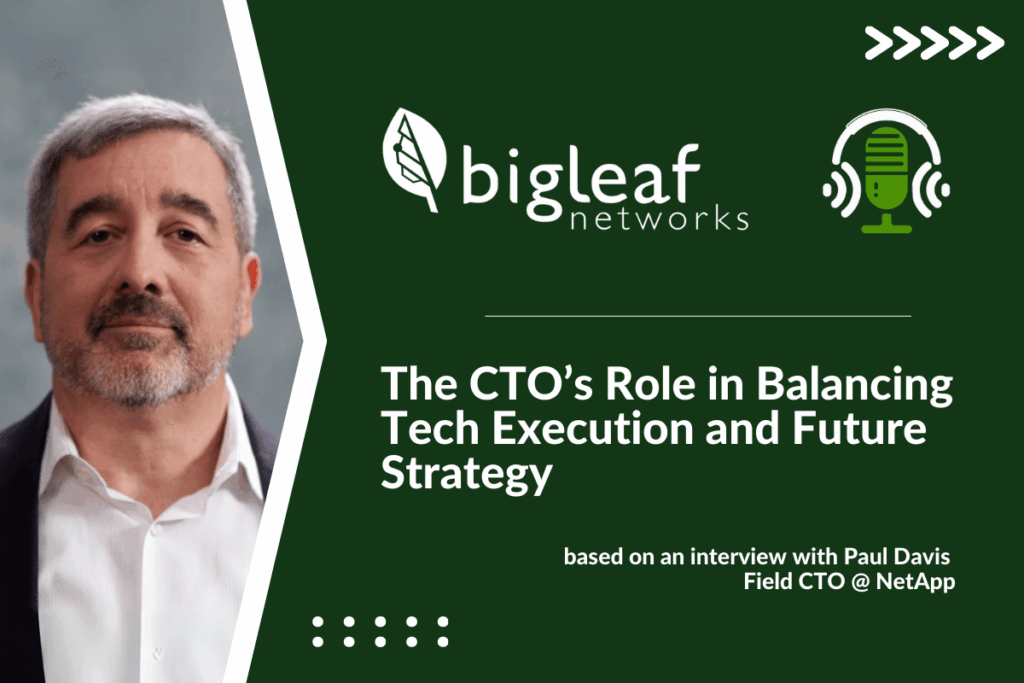“Where CTOs get to play is in helping define strategy while also looking beyond what’s next.” – Paul Davis
In complex enterprises, success depends on more than keeping the lights on. Paul Davis, Field CTO at NetApp, says modern CTOs must balance the demands of daily execution with the foresight to prepare for what’s next—bridging the gap between immediate customer needs and long-term innovation.
Beyond the CIO’s Scope
While CIOs focus on operational continuity, CTOs are tasked with shaping the future. Paul notes that this means asking critical questions early: How will today’s choices scale? Do current investments align with evolving customer expectations? This future-focused mindset reduces transformation risk and builds trust across leadership teams.
Key takeaways:
- CTOs act as strategic translators between technology and business.
- Future-proofing starts by questioning current assumptions and delivery models.
- Technical credibility is vital for influencing customer decisions and sales success.
- Short-term efficiency must align with long-term resilience.
- Architecture should evolve in step with business strategy and market shifts.
Driving Growth Through Sales Alignment
Paul’s Field CTO role is embedded in the sales organization, where he collaborates with account executives and solution engineers to connect technical capabilities to customer outcomes. This integration accelerates deal cycles and strengthens customer retention by ensuring technology investments deliver on promises.
Asking the Right Questions
Paul often asks, “How is what we’re doing today setting us up for success tomorrow?” It’s a deceptively simple question that uncovers gaps in training, architecture, and visibility—before they derail delivery. Addressing these gaps early reduces costly rework and builds a stronger foundation for innovation.
Long-Term Vision in a Fast-Moving Market
For CTOs, success lies in keeping one foot in the present and one in the future. Paul’s approach shows how balancing these priorities ensures that technical execution today doesn’t compromise strategic opportunities tomorrow.
